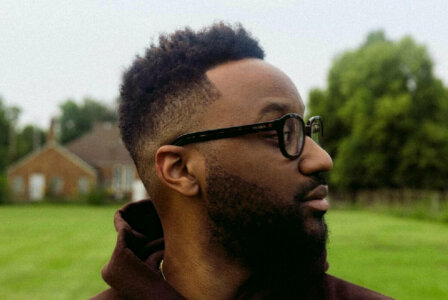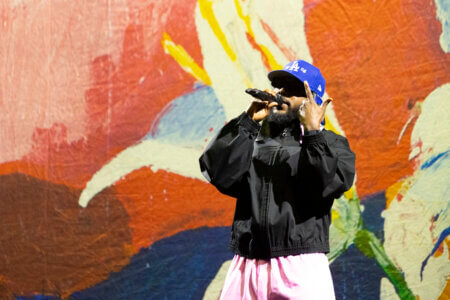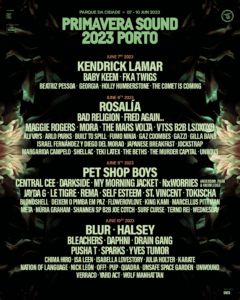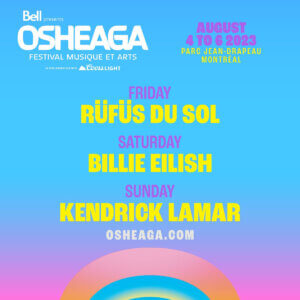The Beef That Cured Our Collective Insomnia

The party is over, and the beef is stale. Kendrick Lamar and Drake have been sparring through song for a week. The initial tide of excitement has receded, and the memes have been added to the internet’s record. It’s hip hop’s most exciting battle-possibly since Drake’s last landmark beef with Pusha T, which revealed Drake’s son, Adonis. At its core, this battle is beyond rap egos, or the Mount Rushmore of who the greatest 2010s rapper is. It’s a competition of the conscious fundamentals of hip-hop itself and the idea of rap music being a popular product. Kendrick Lamar is the rapper’s rapper- at least for the genre’s old guard. Drake represents the glitz and glamour of a rap star who’s well-skilled in how to acquire and hold attention- and how to convert that attention into dollars. It’s been a long time since I first heard Kendrick Lamar for the first time, and even longer since I first heard Drake’s “The Motto” in the back of a school bus. Both artists are, to a degree, much different than when they first arrived on the scene.
So, let’s recap. This all began with Kendrick’s feature on “Like That,” the presumptive hit song from Metro Boomin and Future’s long-awaited, yet slightly underwhelming collab album We Don’t Trust You. Kendrick decides he doesn’t fully see himself as part of the “Big 3,” and says the crown belongs to him. The internet is rightly set ablaze. Oh, the horror! Can there really only be one rapper to rule them all? Only for J Cole to respond with “7 Minute Drill,” which was later scrubbed from our collective streaming platforms- not on the account that it honestly lacked bite- but because J Cole felt conflicted.
Drake broke his silence with “Push Ups,” where he threw barbs at Kendrick’s height and status within music. He presumed that Kendrick’s success was because of him. And, as he would do in other songs later in the week, directed his attention to other individuals- including Whitney Alford, Kendrick’s fiancè, and Metro Boomin. And, in the now unavailable “Taylor Made Freestyle,” Drake attempted what some would consider the 8 Mile effect. He utilized AI to impersonate Tuac and Snoop to give Kendrick a pep talk in how to attack Drake, and then didn’t show up as himself til the end of the track. (For the record, Snoop Dogg is alive and well, and it’s telling that AI was used by such a star as Drake, instead of a real verse from the Dogg himself.)
But what’s wrong with “Taylor Made Freestyle” is the very thing that led to the track’s removal- Drake’s penchant for taking on a voice that was never his to begin with. Whether it be Jamaican patois, UK slang, or a regional sound, Drake has long decided that the easiest route to success is to never fully speak from his true voice. Though a cheap move, it’s paid in dividends.
So, when Kendrick Lamar decided to do some impersonation of his own on “euphoria,” I can only imagine how that must have felt. “euphoria” arrived last week on a random Tuesday morning. Kendrick acknowledges that song is part of their sparring, but that it doesn’t need to be personal. He attacks the posturing that Drake does in terms of his Blackness, style, and character. We then were treated to “6:16 in LA,” Kendrick’s version of an introspective Drake-style song akin to the Canadian rapper’s songs with timestamps and cities in the title.
Both songs made way for Drake to release “Family Matters,” the most exciting rap many of us have heard from him since..several albums ago. In a moody video, Drake shows us the destruction of what looks like the car on the cover of Kendrick’s classic album “good kid, m.A.A.d city.” The song is meant to provoke, but much of the song is repetitive and unfocused. Drake darts between accusing Kendrick of domestic abuse, and questioning who the father of Kendrick’s children is, to spew his anger at A$AP Rocky, Future, Metro Boomin, Rick Ross, and The Weeknd. (Rick Ross briefly entered the ring with “Champagne Moments,” and has been clear about his displeasure for Drake.) Drake’s main argument is founded on portraying Kendrick as the opposite of the moral, conscious rapper image many have associated him with. On the flip side, Drake, from his perspective, stands as the reason for Kendrick’s success, and holder of several pieces of rap memorabilia, including Tupac’s ring, and assorted items associated with Pharrell.
In an unexpected turn, Kendrick quickly responded with the haunting “meet the grahams,” his open letter to Drake’s family, including Drake’s purported 11-year-old daughter, whose identity and existence have yet to be confirmed. It was at this moment that the entertaining beef took on a darkness that should have signaled for all involved parties to stop. It’s the second song to include calls for violence-Kendrick says Drake deserves to rot in a cell, or die. (Gunshots can be heard on “Family Matters.”) “meet the grahams” signifies hip hop’s ability to deal with darkness and bear witness to it- especially the faults Kendrick claims Drake has a father, with his finances, and again his ability to be true to himself. The song serves as a rebuke, with one of the final lines saying “Fuck a rap battle, this a long life battle with yourself”. Yet, the song and this musical sparring demonstrate that hip hop itself is wildly unable to hold its darkest corners accountable.
By now, it’s now Saturday, and Kendrick accosts Drake with “Not Like Us,” in which he accuses of Drake of relying on other rappers for cultural relevance, and for being a pedophile. And he says that Drake’s Oakland show will be his final stop, again calling for Drake’s end. (Drake currently has no shows listed on Ticketmaster or AXS.) But, nonetheless, he tells Drake to run for his life. Though we’re all dancing, are we really hearing what’s being said?
The darkness is further proved by Drake’s most recent entry, “The Heart Part 6,” and today’s shooting. In this final track, Drake, blithely rapping the weariest bars since this started, takes several positions that, given the allegations in Kendrick’s song and what’s already been documented on video, further mar his credibility as a rapper and an individual. Drake emerges from the position of Drake the mogul, and shifts Drake the tabloid source- revealing that he allegedly planted information. He claims that he’s too famous and respected to be a pedophile. Here, on this muted track, he seems to want out from the beef. And for the umpteenth time, Drake paints himself as the man a relationship man such as Kendrick should worry about, and the source of his fame and even his own relevance in the beef. However, I think the public is more tired than Drake is on the spoken outro of “The Heart Part 6.”
Drake has been accused of pedophilia and preying on young women. Kendrick has been accused of physical abuse. Both rappers have collaborated with artists who aren’t strangers to controversy, or similar allegations. With all of this supposed truth-telling, no solutions have been provided in terms of addressing the inherent misogynoir that plagues the genre, and that colors many of these songs. Black women like Megan thee Stallion, SZA, and Sexy Redd have all been thrown into these songs- and in previous ones before this ‘rap civil war’ began. Let’s not forget Drake’s alleged shade at Megan on “Circo Loco,” which accused her of lying about being shot by Tory Lanez. With all the back and forth on who seemingly cares for women more- who is willing to commit to it wholeheartedly, and why did it take so long for us to hear wisps of the need for accountability from two of the biggest rappers?
Then, news broke today that a shooting occurred outside Drake’s home, injuring a security guard. It’s not clear if this incident is related to recent events. But, lyrics, unfortunately, may just have consequences.
We don’t need more disses, sneak disses, or shade. What we need is true accountability, that goes beyond a bar meant to elicit awe or despair. After we’ve all been chronically online, foaming at the keyboard to see what’s next, will we as music fans- better yet, the artists vying for our attention- be able to recognize those who silently have dealt with the abuse, unprotected from trolls and suprfans, or even the realization that they may have been groomed? Is hip-hop, the genre that arose from lyrics that spoke to the issues Black people in America continue to endure, doomed to simply be a product peddled by an alleged culture vulture? And will the genre ever rise to being honest on how women are spoke of, and spoken to?
The answer has yet to be found. Flo Milli, considered one of the rising stars among women in rap, recently cut one of her opening sets on Gunna’s tour short after getting hit with an object by a fan. Who could forget Rico Nasty being disrespected by Playboi Carti fans back in 2021? It seems that bars to explain these situations was effectively mixed out of the conversation.
The better question for both Kendrick and Drake is this- which one of you is ready to put the pen down and prove that your influence could be put to better use?
Words and thoughts of Sarah Beckford
Latest Reviews
Tracks
Advertisement
Looking for something new to listen to?
Sign up to our all-new newsletter for top-notch reviews, news, videos and playlists.









